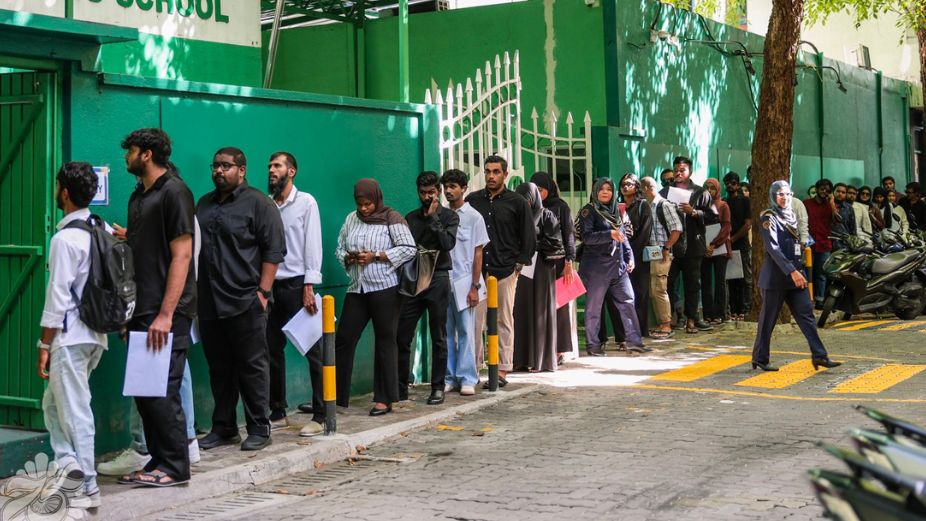
The sight of nearly 900 people queuing outside Galolhu School on a Saturday morning, all hoping for one of just 50 Immigration Officer Trainee posts, was more than a striking headline. It revealed the underlying strain of a tightening job market in the Maldives, especially for entry-level public sector positions that promise stability, security, and a predictable income.
Maldives Immigration reported that 876 individuals turned up for the walk-in interview conducted on 24 May 2025. The sheer volume of applicants was notable, even in a country where public sector jobs are highly sought after. Interviews were held in multiple classrooms throughout the day, eventually requiring additional panels to manage the crowd. For a role offering a basic salary of MVR 6,500 plus allowances, the turnout signals a deepening concern among job seekers.
Recent labour market surveys suggest that younger Maldivians face increasing difficulty in securing steady employment without connections, specialised training, or vocational skills. Despite high enrolment in higher education, many graduates find themselves applying for entry-level government jobs, often unrelated to their field of study. Public sector roles such as those in Immigration, Police, and Civil Service are particularly attractive due to the perception of job security, pension benefits, and structured career progression, qualities often missing in the private sector, especially in hospitality and retail.
The queue at Galolhu also reflects a broader sentiment of economic insecurity. With rising living costs in Malé and few high-paying alternatives outside the capital, many are drawn to whatever openings they can find, even if it means waiting for hours in the heat, clutching a folder of certificates and a hope for regular income.
Meanwhile, the private sector continues to face high expatriate dependency, particularly in construction, technical services, and even mid-level management. This has fuelled ongoing discussions around skills development, youth training programmes, and labour market reform. Yet for many, those reforms cannot come quickly enough.
The walk-in interview model may have brought convenience, but it also laid bare the urgency with which Maldivians are seeking work. It was not just a job fair; it was a reality check.











